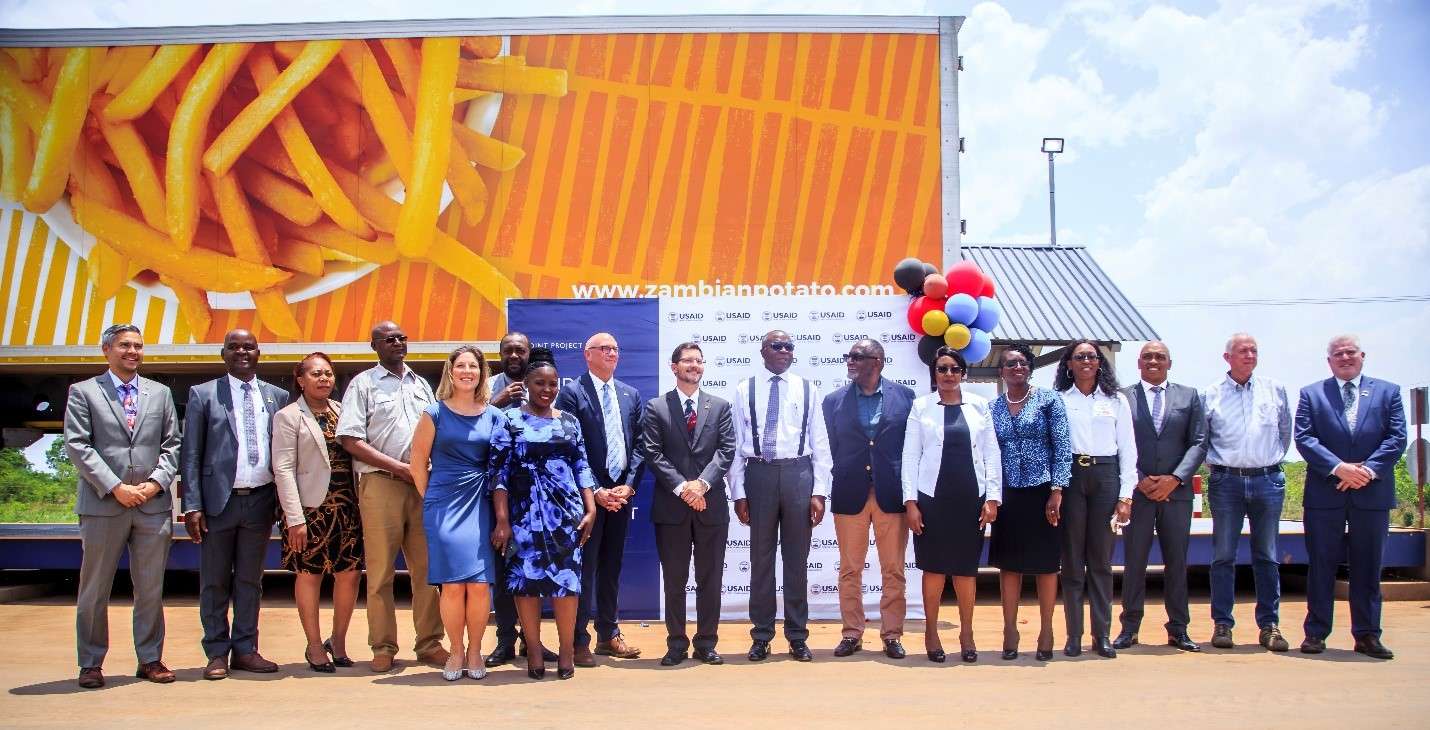
DT Global has just launched two major projects for USAID and FDCO to build resilient economies through inclusive growth.
In Zambia, the five-year USAID Business Enabling Project, implemented by DT Global, will emphasize gender equality and inclusion in its aims to support private sector development and improve the business enabling environment in trade, agriculture, energy, and eco-tourism.
The Project will address key bottlenecks to private sector growth and build capacity of local firms through a localization approach that puts local firms front and center to achieve project goals. It aims to ensure women participate in and benefit from an improved business enabling environment through interventions informed by a gender analysis that identifies critical constraints to the growth and success of women-led businesses.
“The Business Enabling Project will enhance investments for economic growth and development in Zambia,” said Jaleen Moroney, Executive Vice President of DT Global US. “We are excited to work with the government of Zambia, relevant ministries and government agencies and companies like the Zambian Potato Company to strengthen a business-friendly environment that incentivizes investments, strengthens institutions, and engages the public and private sector in productive dialogue. This project will focus on inclusive growth to ensure that women’s interests are equally represented and to unlock the potential of women-owned and women-led businesses like MC Sangwani General Suppliers to contribute to Zambia’s economy.”
The launch was officiated by the Acting Minister of Commerce, Trade and Industry of the Republic of Zambia represented by The Honorable Dr. Situmbeko Musokotwane on behalf of His Excellency Hakainde Hichilema, the President of the Republic of Zambia. The launch was also attended by The Honorable Michael C. Gonzales, U.S. Ambassador to Zambia; USAID Mission Director to Zambia Peter Wiebler; Moroney; and Mercy Chisi-Sakai, CEO and founder of MC Sangwani General Suppliers, a women-led business.
Somalia’s faces significant changes including climate disasters and violent conflict that weaken the economy and disproportionately affect the most vulnerable populations. The five-year USAID and FCDO-funded Inclusive Resilience in Somalia Activity (IRiS), implemented by DT Global, will focus on strengthening the economic resiliency and agency of these disadvantaged groups. Like the Business Enabling Project in Zambia, the IRiS project also partners with the government, private sector, and other market actors and focuses on interventions to support women and marginalized groups especially in rural areas.
Moroney outlined the vital role the project plays in responding to the diverse and difficult external shocks of the country in recent times. “DT Global’s IRiS Activity aims to strengthen and expand resilience through economic opportunity. The project will especially focus on groups that have suffered disproportionately or have been misplaced due to conflict and climate change. We will work with our consortium partners to tackle the most pressing humanitarian needs to sustain and diversify livelihoods and integrate displaced persons into the local economy. The Project will promote the economic agency of marginalized groups and aim to increase the skills needed to take advantage of economic opportunities for years to come.”
The launch event was presided over by his Excellency Honorable Salah Ahmed Jama, the Deputy Prime Minister of Somalia; The Honorable Larry André Jr., the U.S. Ambassador to Somalia; Ed Barnett, the U.K. Deputy Ambassador to Somalia; and USAID Acting Mission Director to Somalia, Ted Lawrence; and attended by the Federal Minister of Planning, Investment, and Economic Development; the Federal Minister of Fisheries and Marine Resources; the Federal Minister of Livestock, Forestry and Range; and the Federal Minister of Labor and Social Affairs; as well the same ministers from South West State, Hirshabelle State, and Jubaland State.
Inclusive growth strategies spread the benefit of economic growth equitably and often target areas where the poorest in society work such as the agriculture sector where workers may be left at the mercy of climate change and weather shocks. By providing knowledge, access to markets and financial services, facilitating market linkages, building skills and networks, and expanding investments, the disadvantaged or marginalized groups throughout a society can gain or strengthen economic agency and reap the benefits of growth.
Inclusive strategies are especially vital in post-conflict zones, and humanitarian and stabilization interventions are a vital first step in this resilience agenda in Somalia. The IRiS project will also facilitate the integration of internally displaced persons into urban economics.